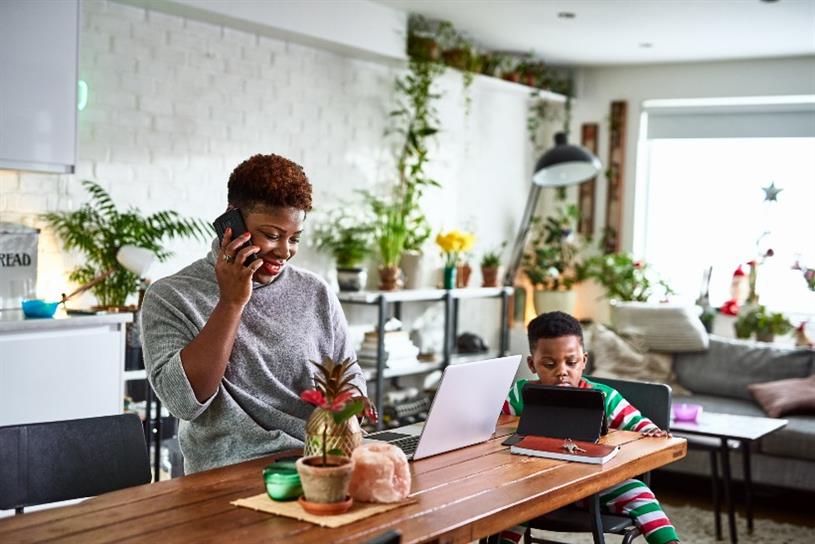Originally published on Campaign US by Stephanie Nadi Olson, February 11, 2020
I am calling for all brand marketing teams, advertising agencies and in-house agencies to reconsider their talent approach.
Gone are the days where we can collectively write off remote work as “high maintenance,” a “millennial thing,” or a way for “slackers to float under the radar.”
If the two years since founding We Are Rosie have taught me anything about remote workers, it’s that the reasons for wanting or needing (yes, needing) to work in this way are as varied as the talent we get to represent at my company.
A fascinating byproduct of my job as a bridge between marketing freelancers and companies seeking on-demand talent is that independent consultants in our community often share a personal glimpse into how they landed here with us at this time in their career.
Some of our community members are disabled. Others have experienced trauma in the traditional workplace that has left them unwilling to go back into the paradigm of nine-to-fives (or nine-to-nines for many) and offices. Many have felt tokenized in a traditional workplace. Several experience anxiety disorders that make them uneasy and unable to thrive in a crowded office.
Some moved out of a major market to care for a family member. Others still live in major markets, but are unable to leave their home for work as they have an elder in their care and living with them. We have Rosies in the midst of transitioning who seek privacy and peace in their lives at this time by staying out of an office. Other members of our remote community have an illness that requires maintenance and care that they would be uncomfortable doing in front of others. They may have been discriminated against in a traditional work environment and appreciate the ability to land projects based solely on merit.
The list goes on and on. The stories shared by our community of remote workers will both inspire you and break your heart. These people are resilient, dedicated, and motivated to use their skills to have a career that meets the needs of their life at any given moment. This is indicative of the human experience, a concept the corporate world has lost sight of, but must reconsider to evolve what work means in the future, and now.
But I come bearing good news from the inside: In just two years, we’ve galvanized 3,000-plus marketers to be a part of We Are Rosie’s community of marketing consultants. The community has completed 200-plus projects for two dozen Fortune 500 brands and with “the big six” agency holding companies. This is a point I don’t want to gloss over. Holding companies are typically seen as slow to evolve, but what we are seeing is a seismic shift. It gets better: every single one of our clients has come back to ask for more.
Sure, there is typically hesitation with the first Rosie working remote at an agency or brand, but once the bandage is ripped off, the organization swiftly realizes the limitless possibilities of working in this new way. We always say “happy people do better work” and the proof is in the proverbial pudding (demand for more and more Rosies).
We are moving the needle on remote work in advertising, but we can’t do it alone.
I am calling for all brand marketing teams, advertising agencies and in-house agencies to reconsider their talent approach to be inclusive of remote working; to create more opportunity for the diverse, talented experts who have chosen to work this way for one reason or another. I call on our industry to de-stigmatize remote work and remove shame for those who want or need to work in this way. I call on us to acknowledge that excluding remote talent from marketing teams is both a diversity and inclusion hinderance that warrants immediate attention.
And as someone who has a unique view into the operations of brands and agencies old and new, I can say unequivocally that all companies (especially old) are vulnerable if they don’t move to evolve quickly. The best talent is being scooped up every day by smaller, more agile organizations who embrace remote and flexible talent. It’s simple: the broader your customer segment, the more likely you are alienating them by not creating space for those who share their experiences to work on your brand.
While organizational change can feel daunting, we are living in a gilded age of user-friendly collaborative communication. Leaders: does your organization embrace Slack? Zoom? Google Drive? Asana? Do you empower and encourage employees (especially creatives) to go out into the world and explore? Have you educated yourself and your team on the upside of such offerings? If not, I call on you to question how your company can evolve to create a more collaborative and inclusive culture inside and outside of the walls of your office space, in service of very humans that produce the work.
Certainly, the state of remote and flexible work in America deserves much more consideration than is currently being given by most businesses. And adland has a huge opportunity to take the lead and evolve to a new paradigm of inclusion. By eradicating physical boundaries, your options expand 100x fold. The simplicity and outsized impact of this solution should be considered by all brands and agencies yearning to be more diverse, equitable, and inclusive.
The future of work is now. It’s up to adland to embrace change, prioritize talent, and watch the results speak for themselves.
